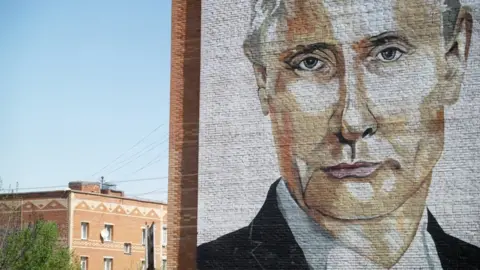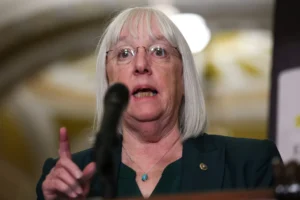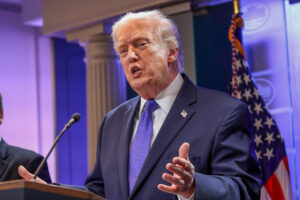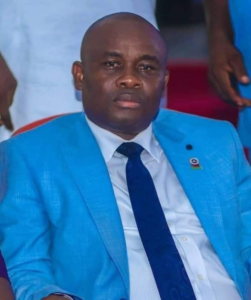Vladimir Putin’s familiarity with the ceremonial route from the Grand Kremlin Palace to the St Andrew’s Throne Hall was evident as he embarked on it for the fifth time. With ease, he navigated the path to officially commence his new six-year term as Russia’s president.
Addressing a gathering of ministers and dignitaries, Putin emphasized unity and resilience. “As a unified and formidable nation, we will surmount any challenges, realize our aspirations, and emerge victorious,” he declared.
Though the red carpet may have felt familiar beneath his feet, the landscape of Russia has evolved significantly since Putin’s inaugural ceremony in May 2000. At that time, he vowed to safeguard and advance democracy while nurturing the well-being of the nation.
Two and a half decades later, the Kremlin’s figurehead finds himself embroiled in a conflict with Ukraine, marked by significant losses for Russia. Domestically, rather than fostering democratic progress, President Putin has opted for its suppression, imprisoning dissenters and dismantling institutional checks and balances on his authority.
Fiona Hill, a former White House national security advisor, perceives Vladimir Putin’s self-image as akin to that of a Russian tsar, dubbing him “Vladimir the Great.”
Reflecting on Putin’s initial presidential terms, Hill suggests a potentially favorable appraisal. She acknowledges his role in stabilizing Russia politically and restoring its fiscal health. At the time, the Russian economy and governance system exhibited notable improvement, surpassing previous benchmarks.
However, the landscape altered significantly with the eruption of conflict in Ukraine, notably marked by the annexation of Crimea a decade ago. This shift, according to Hill, has transformed Putin from a pragmatist into an imperialist figure.
Since Vladimir Putin ascended to power, the United States has witnessed the tenure of five distinct presidents, while Britain has seen the leadership of seven prime ministers—an astounding testament to the passage of time.
Having steered Russia for almost a quarter of a century, Mr. Putin has undeniably left his imprint on the nation’s trajectory. Unlike past eras, characterized by references to “Brezhnevism,” “Gorbachevism,” or “Yeltsinism,” Putin’s reign has introduced a new chapter in Russian politics.

However, the concept of Putinism has emerged as a notable phenomenon.
“We now have another -ism to reckon with in our historical narrative: Stalinism,” remarks Andrei Kolesnikov, a senior fellow at the Carnegie Eurasia Russia Centre.



























